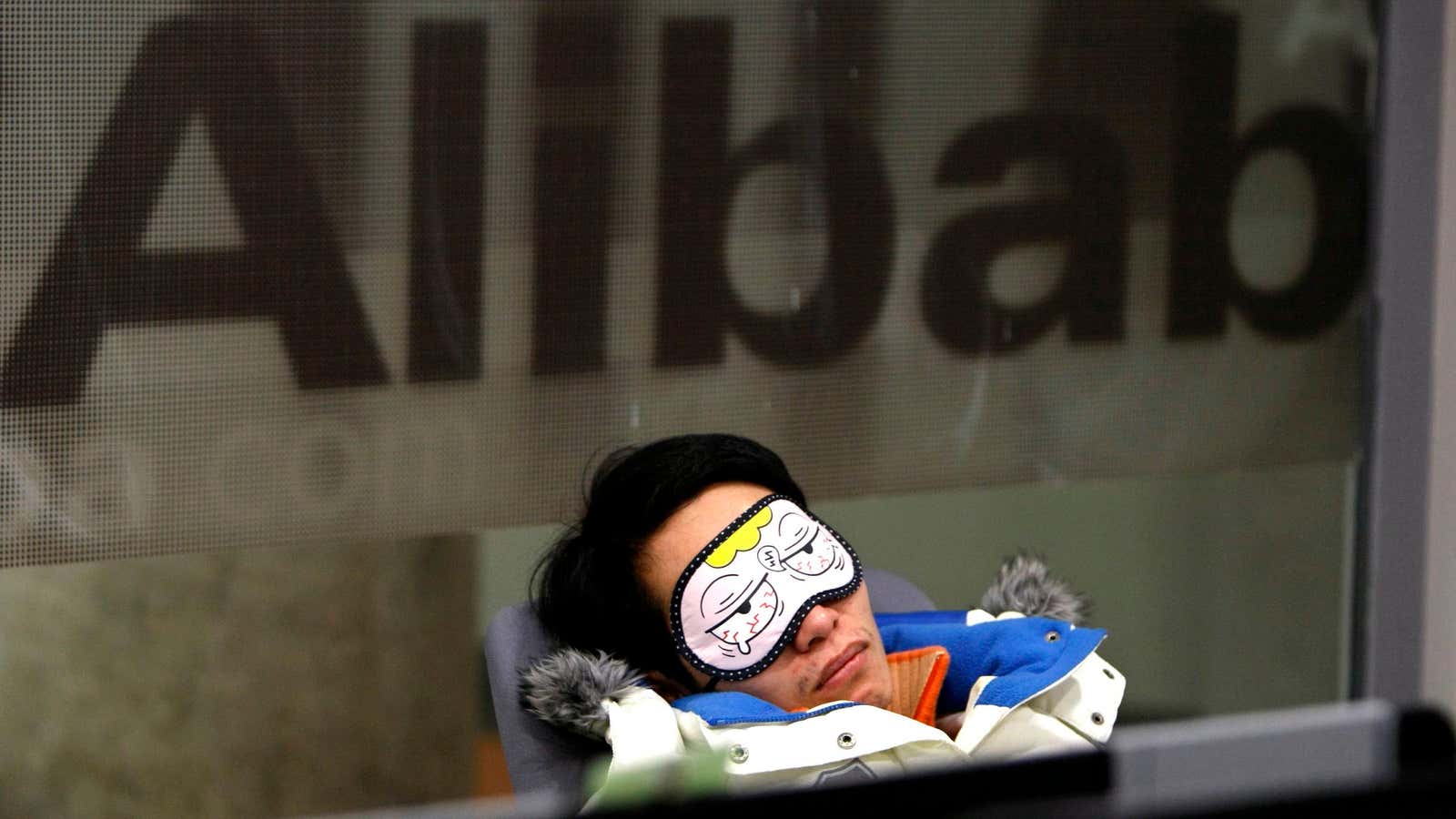Chinese e-commerce giant Alibaba said today that it has found accounting problems at its newly acquired television and film production company, now known as Alibaba Pictures. The scandal, which raises questions about the company’s due diligence over the course of a recent buying binge, comes as Alibaba plans to launch one of the year’s largest initial public offerings in the US this fall.
In a statement (pdf), Alibaba said that new management of the Hong Kong company formerly known as ChinaVision had uncovered ”non-compliant treatment of financial information” as well as”insufficient provision for impairments of certain assets,” suggesting that the ChinaVision’s accounting was questionable and its balance sheet not as healthy as it appeared. Shares in the Hong Kong-listed Alibaba Pictures have been halted from trading since this morning, and the company said it will delay reporting earnings for the first half of the year.
ChinaVision is one of 30 deals Alibaba has completed since the start of last year, spending a total of about $6.6 billion, according to Dealogic. In March, Alibaba agreed to acquire ChinaVision for 6.24 billion Hong Kong dollars ($804 million), gaining rights to English Premier League football and announcing a deal to work with famous directors like Wong Kar-wai. Hong Kong martial artist star Jet Li sits on the company’s board. By expanding Alibaba’s footprint in China’s expanding entertainment industry, the deal was meant to give Alibaba an edge over rivals like Tencent.
Instead, it now casts doubt on how thorough Alibaba has been in inspecting its purchases. “People will take a look at their future M&A more carefully,” Raymond So, dean of the business school at Hang Seng Management College in Hong Kong, told Bloomberg. “They have to strengthen their corporate governance so that it’s subject to increased checks and balances.”
In its regulatory filing (pdf, p. 30), Alibaba named “difficulties integrating into our operations the…financial reporting of companies we acquire” as one of its risks. “Our significant acquisition activity has occurred recently, and we do not have substantial experience in integrating major acquisitions,” the company said.
A separate but still worrying issue is exactly how the auditing of Alibaba Group, based in Hangzhou, will work. New Chinese regulations may begin requiring that non-mainland firms audit Chinese firms through cooperation with local Chinese auditors, but Chinese secrecy laws don’t allow information to be passed on to overseas regulators.
The company’s current auditor is the Hong Kong affiliate of PricewaterhouseCoopers, and the majority of the auditing is being done by the Hong Kong auditors and will be signed off by PWC in the US, according to a person familiar with the matter. Others say that because most of Alibaba’s employees are in China, it stands to reason that mainland PWC auditors—who have been banned from auditing US-listed Chinese companies—are handling much of the case, Peking university finance professor Paul Gillis pointed out in May.
